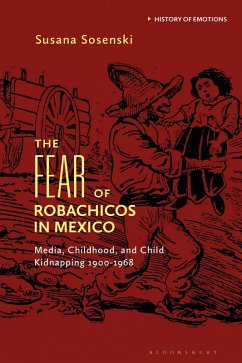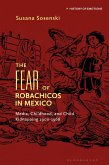Civil society organizations report that fourteen children disappear every day in Mexico. This book studies the origins of this social phenomenon and its consequences, not only in the emotional sphere, but also in how children have been treated. Focusing on children's special positions within Mexican society rather than criminal acts or the implementation of the law, Sosenski links social and cultural history, the history of crime and fear, the application of justice and the media's role, childhood and the city to paint a multi-dimensional picture of child abduction and its causes.
Exploring the social impact of child protection policies and the figure of the robachicos, or child kidnapper, Soneski draws from oral traditions, films and books, songs and plays; all of which embody a culture of fear and danger reported and accentuated by a mass media response. The Fear of Robachicos in Mexico focuses on the role of the media and entertainment in the legitimization of violence toward children and the objectification of their lives, stripping them of their right to freedom and curtailing their autonomy.
Exploring the social impact of child protection policies and the figure of the robachicos, or child kidnapper, Soneski draws from oral traditions, films and books, songs and plays; all of which embody a culture of fear and danger reported and accentuated by a mass media response. The Fear of Robachicos in Mexico focuses on the role of the media and entertainment in the legitimization of violence toward children and the objectification of their lives, stripping them of their right to freedom and curtailing their autonomy.









